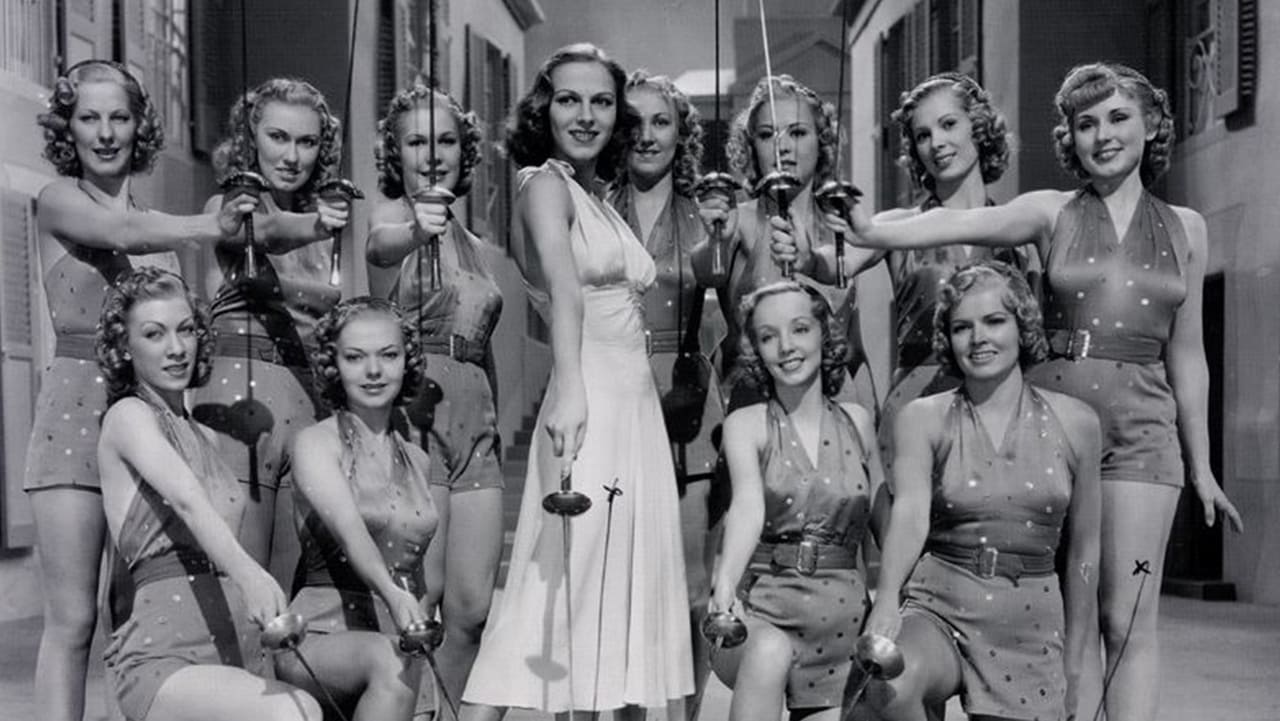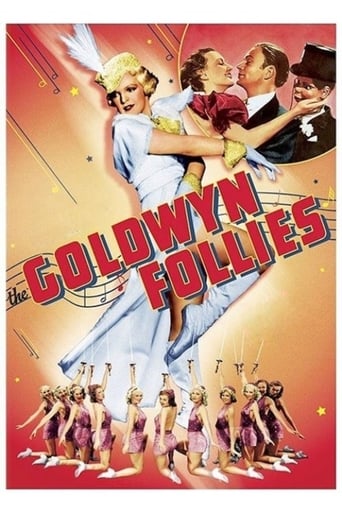

For starters - (If nothing else) - I thought that this 1938 film's Technicolour effects were nothing short of being absolutely astounding to behold. You could clearly tell that great attention to colour co-ordination was very much a major issue in this $2 million production.Now almost 80 years old - The Goldwyn Follies definitely had its good points, as well as its not-so-good points. Featuring 7 Gershwin songs - This picture's story of comedy, music, and romance was obviously very much a product of its time. And, because of this it did make it difficult for this viewer not to scrutinize it just a little too critically.... (But I still give it a 6-star rating) And, finally - When it came to watching famed ventriloquist, Edgar Bergen constantly moving his lips whenever it was his puppet/sidekick Charlie McCarthy's turn to speak - I thought that he was one of the most amateurish and unconvincing performers in his specialized profession that I have ever seen.
... View MoreSome reviewers hated this movie and, admittedly, it is relatively plot-free, but it's such a time capsule of movies, acts, and music of the period that I love it. If you ignore the script and realize you're listening to some FABULOUS Gershwin songs and that you're seeing The Ritz Brothers, Edgar Bergen/Charlie McCarthy and others, it can be pretty great. Unlike the some others, I love the Ritz Brothers' specialty about the cats. Some people just don't appreciate silly. Later on, they get bogged down in the plotlessness, but WOW!! . . the kitty cat number is hilarious!!!!!!!! "Where is the gosh, darn cat?????" Some people just don't appreciate silly. Lighten up, people!!Face it, the movie studios of the day used to trot out all their stars for these Cast of Several movies. Take it for what it is. It was never meant to be "Gone With the Wind". It's more along the lines of "Hollywood Party" (1934) . . Enjoy!!
... View MoreSam Goldwyn did this movie to imitate the Ziegfeld follies and (hopefully) rake in millions. Boy was he WRONG! Adolphe Menjou plays a producer whose movies are failing. He meets sweet, wholesome Andrea Leeds and hires her to be "Miss Humanity" and tell him what the public wants. (No it makes no sense to me either) She tells him all these howlers like "Romeo and Juliet should have a happy ending" and "love is the most important thing". Menjou manages to keep a straight face and says "That's brilliant" to all these pearls of wisdom. One day Leeds goes to a hamburger diner. She walks in to see sweet, wholesome Kenny Baker cooking hamburgers while singing "Love Walked In" (with a full orchestra being heard). Naturally they fall in love. That's when I gave up.Seriously this movie is just unbelievable. The dialogue was full of campy lines and groaningly bad jokes (my eyes hurt from rolling them so much). This movie is full of "speciality" act: Edger Bergman and Charlie McCarthy manage to get out a few good jokes; The Ritz Brothers (a comedy group that makes the Three Stooges look subdued) throw in some "comedy" bits that will have you gaping (in disbelief)--their "pussy cat" song is truly a jaw-dropper; Romeo and Juliet is done as a ballet--with tap-dancing too; there are THREE musical numbers from "La Traviata" worked in; Phil Baker pops up as a seriously untalented accordionist and a LONG dull ballet is shoved in.Acting doesn't help. Menjou manages to keep a straight face; Leeds is given nothing to do but look beautiful and wholesome and Baker is SO nauseatingly sweet that you just want to slap him. Beautiful Technicolor photography doesn't help. This is worth watching just for some nice visuals and the hysterically bad dialogue. Example: "Fill my bath with whipped cream" (????). This falls in the so bad it's good area--but still it's just a 1 all the way.
... View MoreMostly dreadful and overlong this "Follies" attempt patches together a lame plot with a variety of acts.Adolphe Menjou is fine as the movie producer who hires Andrea Leeds to give him the "human touch" in his films. He falls for her but she's in love with a hamburger slinger (Kenny Baker) she tricks Menjou into hiring for his new film. Throw into this stew Vera Zorina as a temperamental ballet star and you have the framework for this film.Edgar Bergen (and dummy) provide some humor, especially in a funny bit with radio star Phil Baker. Helen Jepson sings a few numbers (she's no Jeanette MacDonald), Bobby Clark plays the harried casting director, Ella Logan (trying to be Martha Raye) is the chaperone, Nydia Westman is the friend, Frank Shields (tennis pro and grandfather to Brooke) is the assistant director to Jerome Cowan. The Ritz Brothers (dreadful as usual) have one funny bit and stink in the rest of their appearance. Alan Ladd has a bit as an auditioning singer.
... View More